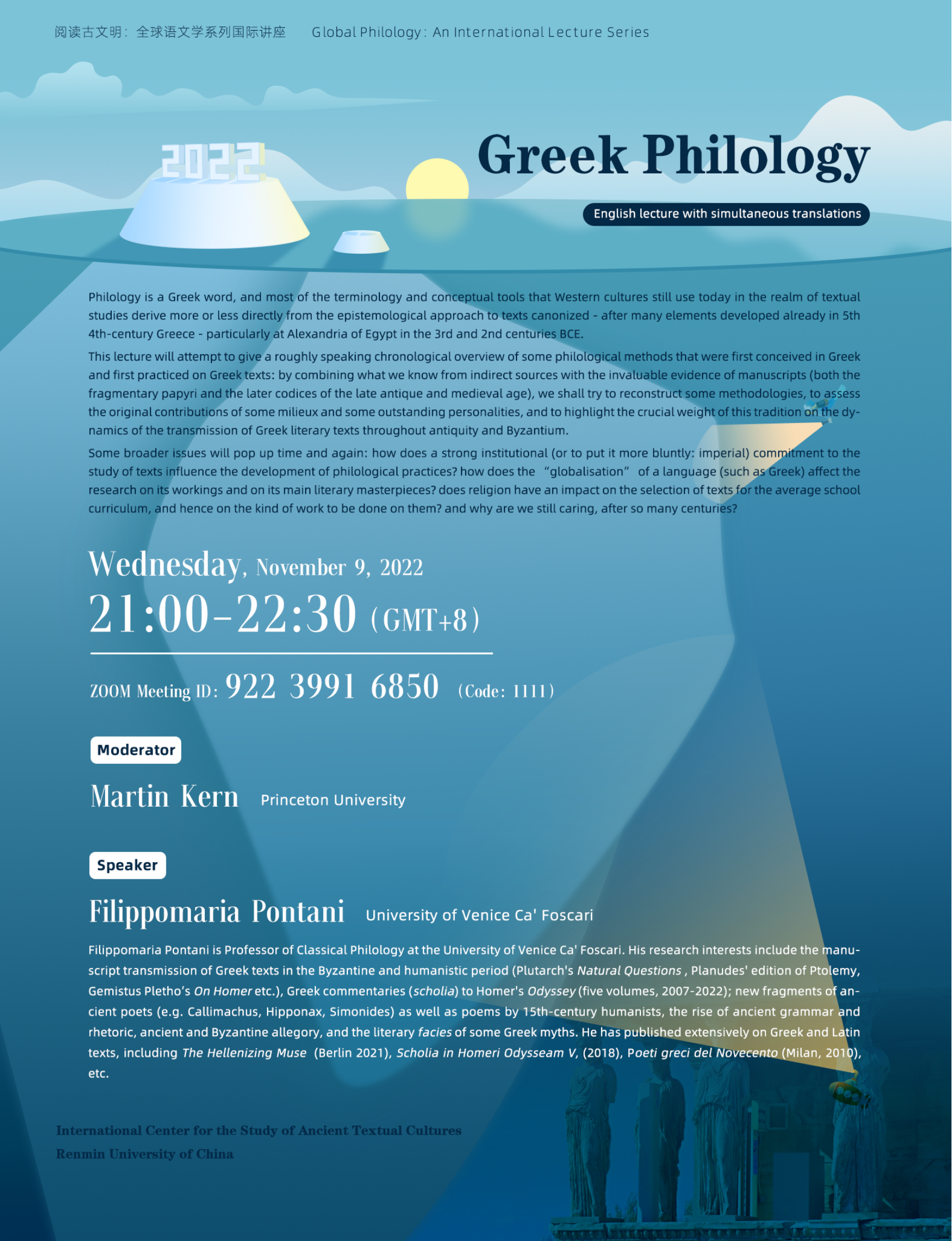[Upcoming]Greek Philology
发布时间:2022-11-09Global Philology:An International Lecture Series
Greek Philology

Title: Greek Philology
Speaker: Filippomaria Pontani, University of Venice Ca' Foscari
Moderator: Martin Kern, Princeton University
Time: 21:00-22:30 (GMT+8), November 9, 2022.
Zoom Meeting ID: 922 3991 6850 (Code: 1111)
Zoom Link:
https://zoom.us/j/92239916850?pwd=MnhBaGxZY1ZpQ3BGMWovRHR1U0h2QT09
Introduction to the Speaker:
Filippomaria Pontani is Professor of Classical Philology at the University of Venice Ca' Foscari. His research interests include the manuscript transmission of Greek texts in the Byzantine and humanistic period (Plutarch's Natural Questions , Planudes' edition of Ptolemy, Gemistus Pletho’s On Homer etc.), Greek commentaries (scholia) to Homer's Odyssey (five volumes, 2007-2022); new fragments of ancient poets (e.g. Callimachus, Hipponax, Simonides) as well as poems by 15th-century humanists, the rise of ancient grammar and rhetoric, ancient and Byzantine allegory, and the literary facies of some Greek myths. He has published extensively on Greek and Latin texts, including The Hellenizing Muse (Berlin 2021), Scholia in Homeri Odysseam V, (2018), Poeti greci del Novecento (Milan, 2010), etc.
Lecture Introduction:
Philology is a Greek word, and most of the terminology and conceptual tools that Western cultures still use today in the realm of textual studies derive more or less directly from the epistemological approach to texts canonized - after many elements developed already in 5th 4th-century Greece - particularly at Alexandria of Egypt in the 3rd and 2nd centuries BCE.
This lecture will attempt to give a roughly speaking chronological overview of some philological methods that were first conceived in Greek and first practiced on Greek texts: by combining what we know from indirect sources with the invaluable evidence of manuscripts (both the fragmentary papyri and the later codices of the late antique and medieval age), we shall try to reconstruct some methodologies, to assess the original contributions of some milieux and some outstanding personalities, and to highlight the crucial weight of this tradition on the dynamics of the transmission of Greek literary texts throughout antiquity and Byzantium.
Some broader issues will pop up time and again: how does a strong institutional (or to put it more bluntly: imperial) commitment to the study of texts influence the development of philological practices? how does the “globalisation” of a language (such as Greek) affect the research on its workings and on its main literary masterpieces? does religion have an impact on the selection of texts for the average school curriculum, and hence on the kind of work to be done on them? and why are we still caring, after so many centuries?